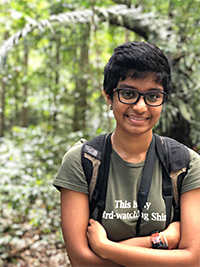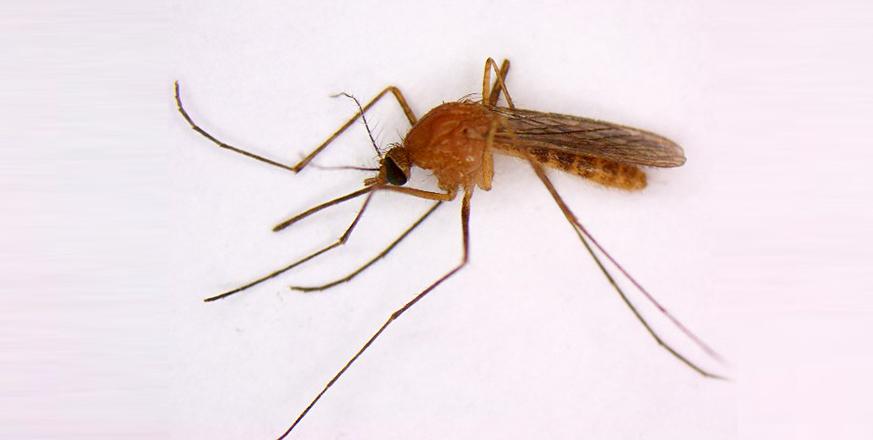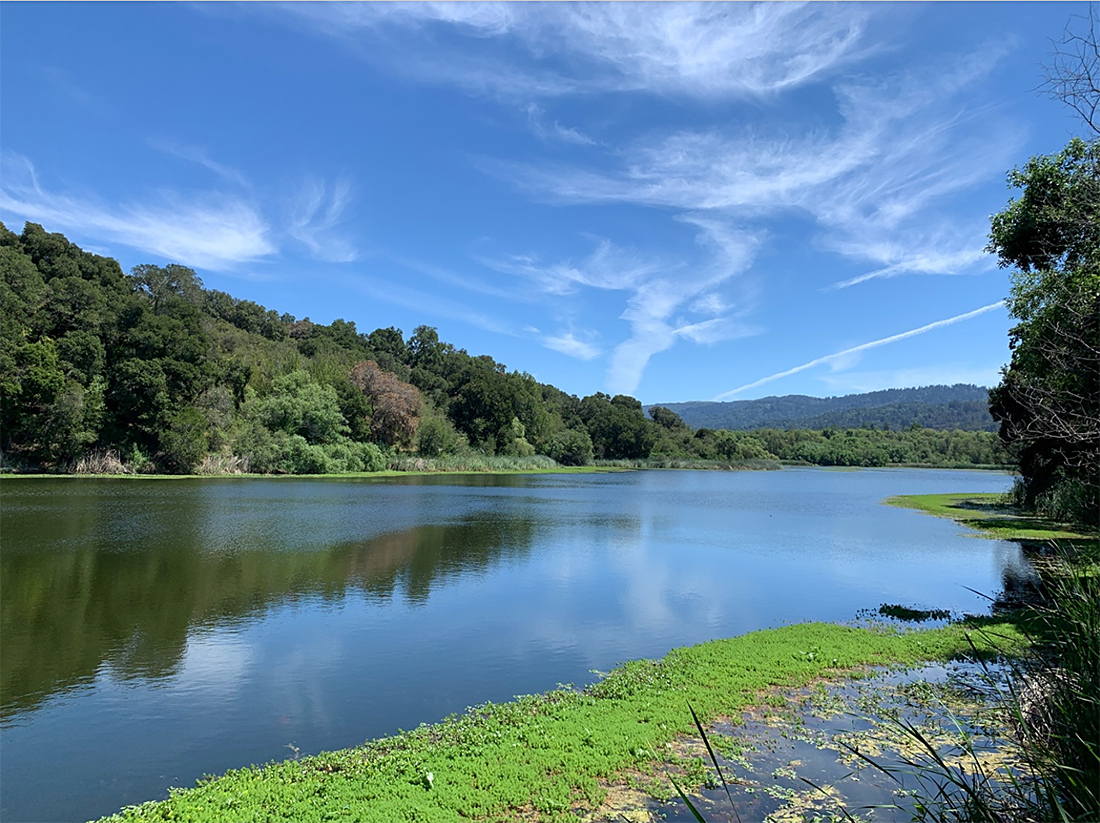If you had told me two years ago, I would spend the entirety of my sophomore year—and probably beyond—studying mosquitoes at Jasper Ridge Biological Preserve, I would have laughed at you. Coming into college, I knew I wanted to pursue ecology, and while I didn’t necessarily know what kind of ecology, I was sure it would be big and bold and charismatic—I would study whales, or birds, or large-scale ecosystem processes. But COVID threw a wrench in everyone’s plans, including mine. I ended up at home in Singapore last summer, working with Drs. Allison Stegner and Elizabeth Hadly from the Hadly Lab, looking at a spreadsheet documenting mosquito abundance at Jasper Ridge Biological Preserve over the last 20 years. I had never been to Jasper Ridge—I still haven’t. But now it was my job to make sense of all of this, somehow.
Why should we care about mosquitoes? Why should I care about these mosquitoes? For a long time as I began my research, as I talked to the lab and my friends and family, I wasn’t quite sure how to answer the question. I grew up in the tropics, so I grew up with the threat of mosquito-borne diseases around me so often it became a normalized, background fear I rarely give much thought to. Mosquitoes are a part of my life back home: after a few days, my arms are regularly dotted with red welts and I instinctively know to close my window on Tuesdays. That’s when our buildings are fogged, thick swathes of an acrid chemical smoke cloaking everything, to get rid of any budding colonies (fig. 2). We get dengue alerts for our neighbourhood every so often; we throw them in the trash and throw out any standing water in our house.

Figure 2. A mosquito repellant fogging operation being carried out by Public Health dengue prevention staff outside Bangkok, June 2012 (source, copyright Sanofi Pasteur / Patrick de Noirmont).
When I came to California, I forgot mosquitoes existed at all, given that their occurrence here is largely limited to the summers. I would make fun of friends who’d complain about them. You have no idea what real mosquitoes are like, I’d say with a scoff. Mosquitoes were just something I lived with, got annoyed by, and otherwise kept at the back of my mind.
But spending a year with my mosquito spreadsheets, I was forced to reconsider that perspective. And so, as I’ve developed questions over the last year with which to interrogate the data, I had to reflect on what mosquitoes stood for. They were just as much a part of ecosystems as other animals. I learned from James Kelleher, another Hadly Lab member, about how Myotis bats relied on mosquitoes for food and what a large component of the biomass of ecosystems mosquitoes comprised. I learned from talking to Dr. Erin Mordecai’s Lab at Stanford about how different mosquito species came together in interdependent communities. And I thought about insects. Mosquitoes are insects: they have six legs just like any butterfly or beetle. But we often don’t categorize them with the rest of them. And as Allison and Liz encouraged me to place my mosquito analyses in the context of alleged global insect declines, I reckoned with that tension. If we thought about mosquitoes as part of a broader ecosystem, not an isolated pest, what did we learn?
Looking at the data, I learned so much, and I’m still finding out more. I found that some mosquito species had radically different life cycles, even on a yearly basis. I found that environmental changes affect mosquito numbers significantly, whether a disrupted rainfall or a long drought. I learned some species had radically similar life cycles, even on a yearly basis. I found that you can’t look at mosquitoes at a monolith. You could barely look at groups of mosquitoes as a unified whole. The trends were complex and dynamic and as worthy of examination as any big book charismatic species. Nothing could be compressed into the small box of mosquitoes—annoying.
At the beginning of this year, Dr. Jorge Ramos invited me to give a talk to the Jasper Ridge community about my research. As I prepared for that, I started to think about what story I wanted to tell here. Once I came out of the maze of data and coding, what did we learn? I reflected on the community around Jasper Ridge and how people treated the preserve over the last century. I reflected on the stories we tell ourselves when we live with nature. Many residents in the records I examined, and most people around me, like to think nature can just be beautiful with nothing complicated about it. We like to think mosquitoes can be separated from the rest of the ecosystem. We like to think we can easily separate out one part of an ecosystem and consider it irrelevant to the rest. We like to think we have power over that part’s existence. Sometimes, we like to think—especially after a hot evening in the rainforest—that we’d be better off without mosquitoes.
I think I’m beginning to realize living sustainably with nature is not a simple ask. It’s one we have to live up to every day. It begins with thinking of ourselves as actors within a larger picture and thinking of everything we interact with as a major player, too. It’s a large, complex task.
I biked around Jasper Ridge the other day. I pedalled past houses and trees and looked at the matrix of residential and natural surroundings the preserve inhabits. It was beautiful. And it was an example, I realized. Jasper Ridge represented what could be possible—building out networks that extend through communities and bind them closer together. As I came to the last slide of my talk, I looked at the hundreds of people who had turned up to listen and who turned up to listen nearly every week. Living sustainably is a large, complex task. But everyone right here had committed to practicing and learning sustainability, to the best of their ability. Jasper Ridge didn’t feel small to me in that moment. It felt like a whole world of possibilities illuminating a better future.
Figure 3. Searsville Reservoir at Jasper Ridge Biological Preserve (source JR staff).
Figure 1 (top of page). Culex erythrothorax (Tule Mosquito) one of the mosquito species Tanvi Dutta Gupta is studying (source: San Mateo County Mosquito and Vector Control District).

Tanvi Dutta Gupta, class 2023
Biology major, concentrating in ecology and evolutionary biology
Department of Biology







